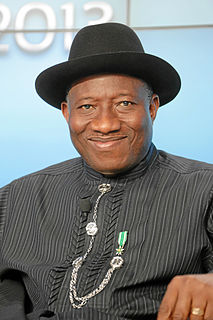A Quote by Robert Nozick
The terminology of philosophical art is coercive: arguments are powerful and best when they are knockdown, arguments force you to a conclusion, if you believe the premisses you have to or must believe the conclusion, some arguments do not carry much punch, and so forth. A philosophical argument is an attempt to get someone to believe something, whether he wants to beleive it or not. A successful philosophical argument, a strong argument, forces someone to a belief.
Related Quotes
Philosophical argument, trying to get someone to believe something whether he wants to believe it or not, is not, I have held, a nice way to behave towards someone; also it does not fit the original motivation for studying or entering philosophy. That motivation is puzzlement, curiousity, a desire to understand, not a desire to produce uniformity of belief. Most people do not want to become thought-police. The philosophical goal of explanation rather than proof not only is morally better, it is more in accord with one's philosophical motivation.
It is commonly said that if rational argument is so seldom the cause of conviction, philosophical apologists must largely be wasting their shot. The premise is true, but the conclusion does not follow. For though argument does not create conviction, the lack of it destroys belief. What seems to be proved may not be embraced; but what no one shows the ability to defend is quickly abandoned. Rational argument does not create belief, but it maintains a climate in which belief may flourish.
Highly technical philosophical arguments of the sort many philosophers favor are absent here. That is because I have a prior problem to deal with. I have learned that arguments, no matter how watertight, often fall on deaf ears. I am myself the author of arguments that I consider rigorous and unanswerable but that are often not such much rebutted or even dismissed as simply ignored.
...[sacred] doctrine is especially based upon arguments from authority, inasmuch as its principles are obtained by revelation: thus we ought to believe on the authority of those to whom the revelation has been made. Nor does this take away from the dignity of this doctrine, for although the argument from authority based on human reason is the weakest, yet the argument from authority based on divine revelation is the strongest.
I shall not convert you at the end of my argument. I think the argument is sound. I hold that belief in God is not merely as reasonable as other belief, or even a little or infinitely more probably true than other belief; I hold rather that unless you believe in God you can logically believe in nothing else.
A good argument diluted to avoid criticism is not nearly as good as the undiluted argument, because we best arrive at truth through a process of honest and vigorous debate. Arguments should not sneak around in disguise, as if dissent were somehow sinister... For it is bravery that is required to secure freedom.
If it were true that conservatives were racist, sexist, homophobic, fascist, stupid, inflexible, angry, and self-righteous, shouldn't their arguments be easy to deconstruct? Someone who is making a point out of anger, ideology, inflexibility, or resentment would presumably construct a flimsy argument. So why can't the argument itself be dismembered rather than the speaker's personal style or hidden motives? Why the evasions?
Paul Davies takes us on a logically and rhetorically compelling modern search for human agency. This outstanding analysis, well informed by naturalistic views of our evolved affective nature, is the kind of philosophical work that is essential for a field to move forward when ever-increasing findings from modern science are inconsistent with traditional philosophical arguments. This book is for all who wish to immerse themselves in the modern search for free will. It is steeped in the rich liqueur of current scientific and philosophical perspectives and delusions.








































